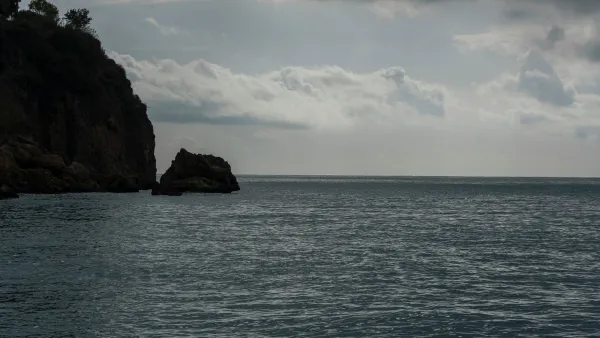New awards received from September 01, 2023 - August 31, 2024
Alexander Bradley, associate professor of Earth, environmental, and planetary sciences, won a $421,644 grant from the National Institute of Health for his project titled “Connecting the Bacterial Metallome to Cellular Metabolism at Single Cell Resolution”.
Paul Byrne, associate professor of Earth, environmental, and planetary sciences, was awarded $245,119 by NASA for his project titled “The Loading History of Tharsis” and $110,216 by NASA for “LEMS-A3: The Lunar Environment Monitoring Station for Artemis 3”.
Brad Jolliff, Scott Rudolph Professor of Earth, Environmental, and Planetary Sciences, was awarded $421,578 by NASA for his project titled “EAGLE Team: Earth-based Artemis 3 Geologists for Lunar Exploration”.
Bronwen Konecky, assistant professor of Earth, environmental, and planetary sciences, won a $274,028 grant from the National Science Foundation for her project titled“Collaborative Research: A 50,000-Year Continuous Record of the Indian Summer Monsoon from Loktak Lake, NE India”.
Katharina Lodders, research professor of Earth, environmental, and planetary sciences, was awarded $493,022 from NASA for her project titled ”Elemental Abundances of Chondrites with Focus on C1-Chondrites”.
Claire Masteller, assistant professor of Earth, environmental, and planetary sciences, won a Faculty Early Career Development Program (CAREER) award in the amount of $696,808 from the National Science Foundation for her project titled “Capturing the Translation of Wave Climate to Coastal Change on Rocky Shorelines Across Scales”. Read more about this project here.
William McKinnon, Clark Way Harrison Distinguished Professor in Arts & Sciences, was awarded $120,712 by NASA for his project titled “Europa and Ganymede After Junocam: Cartographic, Topographic and Crater Distribution Updates and Change Detection”.
Roger Michaelides, assistant professor of Earth, environmental, and planetary sciences, was awarded $22,790 by the Woodwell Climate Research for his project titled “Rights, Resilience and Indigenous-led Adaption” and won a $44,817 grant from NOAA for “Supporting NWS Post-Fire Flash-Flood Warnings with Multi-Sensor Burn Scar Mapping”. He also won a $300,000 grant from NASA for “Characterizing Permafrost and Active Layer Physical Processes Using InSAR Time Series Analysis”. Read more about this project here.
Philip Skemer, professor of Earth, environmental, and planetary sciences, won a $378,188 grant from the National Science Foundation for his project titled “Collaborative Research: GLOW: CSEDI: Compositional Cor Localization and the Development of Plate Tectonics on Earth and Rocky Planets”.
Thomas Stein, Geosciences Node Associate Director, was awarded $839,023 by NASA for his project titled “Dragonfly: A Rotocraft Lander for Insitu Investigation of Titan's Prebiotic Chemistry and Habitability”.
Scott VanBommel, senior research scientist, won a $50,000 grant from the Jet Propulsion Laboratory for his project titled “Constraining Aqueous Processes and the Habitability Potential of Jezero Deposits Through Chemical Deconvolution, Geochemical Analyses, Cross-Mission Comparisons, and Spectral Modeling”.
Douglas Wiens, Robert S. Brookings Distinguished Professor of Earth, environmental and planetary sciences, was awarded $534,988 by the National Science Foundation for his project titled “Collaborative Research: Geophysical Study of Ongoing Subduction Initiation Along the Matthew-Hunter Trench”.
Header image credit: Engin Akyurt/Unsplash


